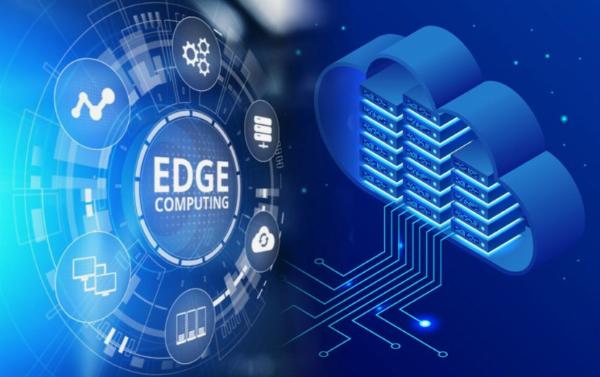Edge Computing in Healthcare: Transforming Patient Care and Medical Services

Strong 8k brings an ultra-HD IPTV experience to your living room and your pocket.
In the rapidly evolving landscape of healthcare, technological advancements are revolutionizing the way patient care is delivered and medical services are managed. One such innovation that is making waves in the healthcare industry is edge computing. By bringing computing power closer to the point of data generation, edge computing holds the potential to transform patient care, enhance medical services, and improve overall healthcare outcomes.
1. Improving Patient Monitoring and Telemedicine
Edge computing enables healthcare providers to collect, process, and analyze patient data in real-time, directly at the point of care. This capability is particularly beneficial for remote patient monitoring and telemedicine applications, where timely access to accurate data is critical for delivering high-quality care. With edge computing, healthcare professionals can monitor vital signs, track medication adherence, and provide remote consultations more efficiently, leading to improved patient outcomes and increased accessibility to healthcare services, especially in underserved areas.
2. Enhancing Diagnostics and Imaging
Edge computing is also revolutionizing diagnostics and imaging processes in healthcare. By leveraging edge devices equipped with powerful processing capabilities, medical imaging data such as X-rays, MRIs, and CT scans can be processed and analyzed on-site, reducing the time and resources required for diagnosis. Additionally, edge computing enables the integration of artificial intelligence (AI) algorithms directly into medical imaging devices, allowing for real-time image analysis and decision support, leading to faster and more accurate diagnoses.
3. Facilitating Predictive Analytics and Preventive Care
Edge computing empowers healthcare organizations to leverage predictive analytics models to identify patterns, trends, and anomalies in patient data, enabling proactive interventions and preventive care strategies. By analyzing data from wearable devices, electronic health records (EHRs), and other sources in real-time, healthcare providers can identify patients at risk of developing chronic conditions, detect early warning signs of deterioration, and personalize treatment plans to optimize health outcomes.
4. Ensuring Data Privacy and Security
Despite the numerous benefits of edge computing in healthcare, ensuring data privacy and security remains paramount. Edge computing brings computing resources closer to the point of data generation, reducing the need to transmit sensitive patient data over long distances and across multiple networks. However, healthcare organizations must implement robust security measures, such as encryption, access controls, and secure authentication protocols, to protect patient data at the edge and mitigate the risk of unauthorized access or data breaches.
5. Addressing Connectivity Challenges
In many healthcare settings, especially in rural or remote areas, connectivity can be a significant challenge. Edge computing addresses this issue by enabling offline operation and local processing of data, allowing healthcare providers to continue delivering care even in environments with limited or unreliable network connectivity. By leveraging edge devices with built-in storage and processing capabilities, healthcare organizations can ensure continuity of care and maintain access to critical patient information, regardless of connectivity issues.
In conclusion, edge computing holds immense promise for transforming patient care and medical services in the healthcare industry. By bringing computing power closer to the point of care, edge computing enables real-time data analysis, enhances diagnostics and imaging capabilities, facilitates predictive analytics and preventive care, and addresses connectivity challenges. However, to fully realize the potential of edge computing in healthcare, healthcare organizations must prioritize data privacy and security, implement robust infrastructure and governance frameworks, and invest in training and education to empower healthcare professionals to leverage edge technologies effectively.
Note: IndiBlogHub features both user-submitted and editorial content. We do not verify third-party contributions. Read our Disclaimer and Privacy Policyfor details.


